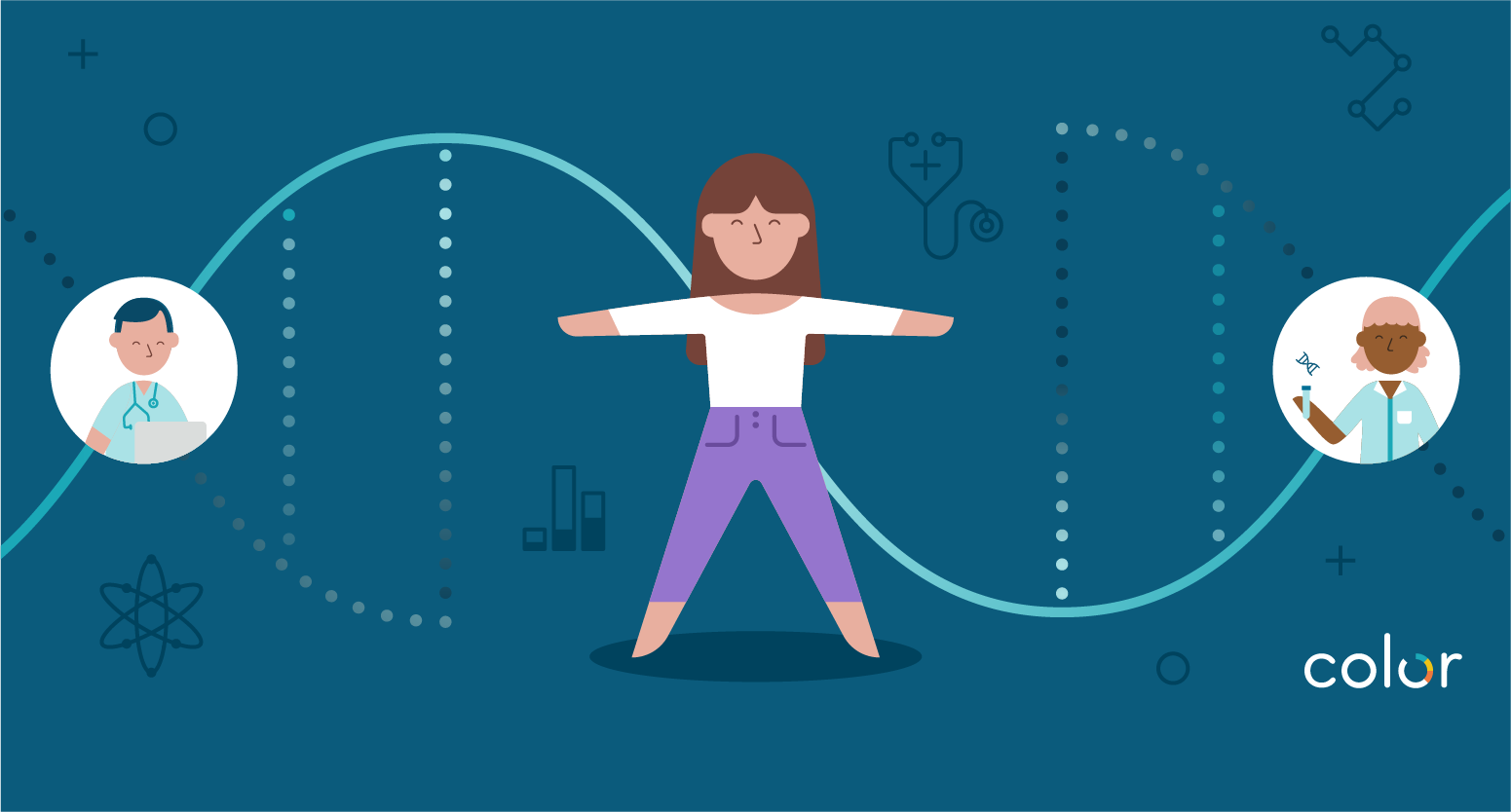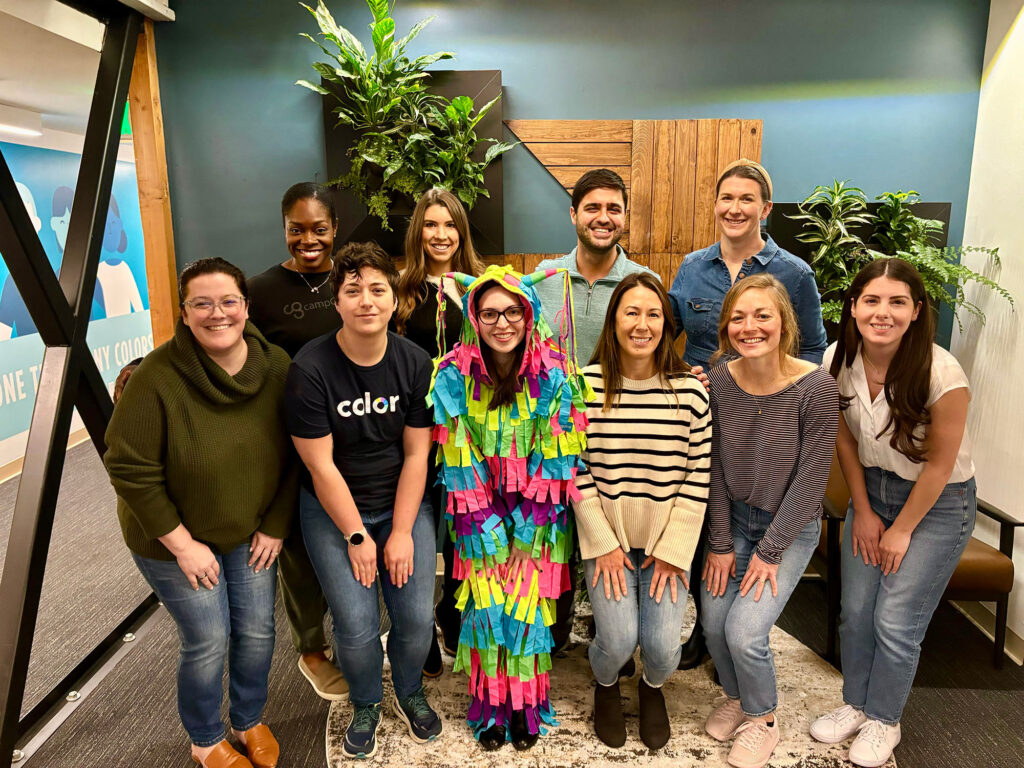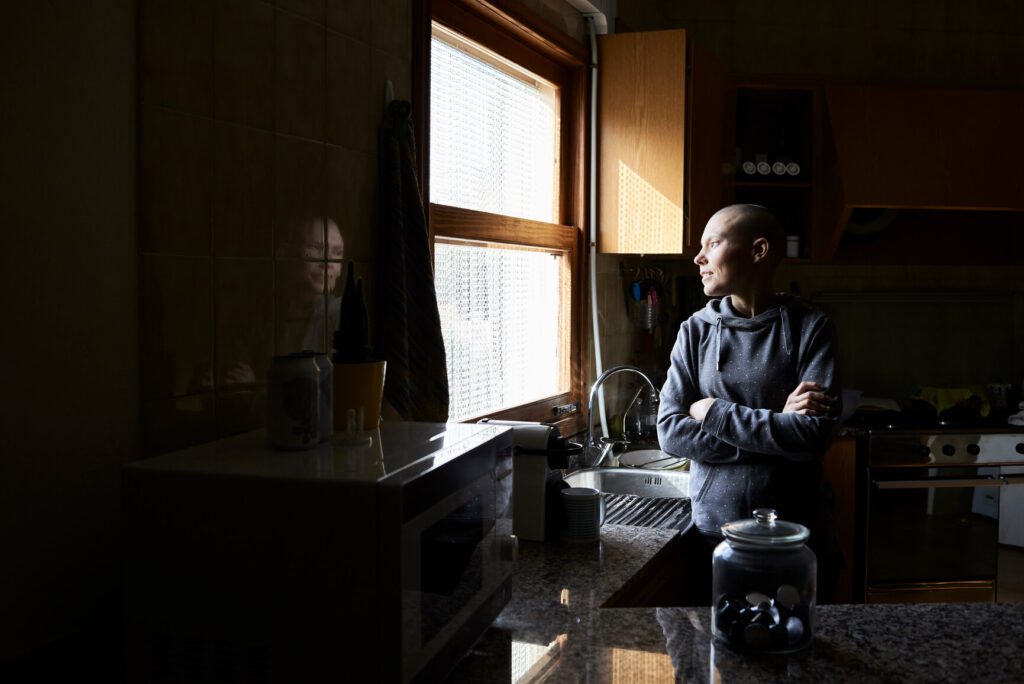News & Articles
How Can a Genetic Counselor Help You? – Color
Andrea Forman

April 25, 2018 marks the 15th Annual DNA Day, which celebrates the successful completion of the Human Genome Project back in 2003. One year later, I graduated with my degree in Genetic Counseling and began working as a genetic counselor specializing in hereditary cancer risk. I feel a particular connection to a day focused on such an important part of my chosen career, DNA!
In my work as a cancer genetic counselor, it is not unusual for a patient to ask, “Why do I need to meet with a you? Isn’t genetic testing just a blood/saliva test?” As genetic testing has become more common in routine medical care, patients have become more comfortable with genetic testing and its potential benefits. After several years of working in this field, it makes me happy to know that “genetics” is no longer a scary word to many people. But even as awareness has increased, the average person may not know that test results can be more complicated than you might expect.
Genetic Counselors can answer questions you might have about genetic testing.
A genetic counselor can help provide answers to questions you might already be asking yourself, such as: What would a positive result mean for me? For my children? Finding a mutation, or a DNA change, in a cancer risk gene could change medical recommendations for cancer screening and prevention. A patient might now have the option of preventive surgery, to lower the chances that cancer ever happens, or a recommendation for cancer screening that starts at a younger than typical age or happens more often compared to a person with an average risk to develop cancer. High risk screening can help make sure that if a cancer develops in the future, it is found at the earliest and most treatable stages. In most cases, if a cancer risk mutation is found in a parent, there is then a 50% chance that the same mutation might be passed on to each child that person has. The only way to find out if that child carries the same mutation is to have him or her undergo testing themselves, typically when they are young adults.
Genetic Counselors can answer questions you might not have thought about.
But what about the questions you might not know to ask? Have you ever wondered what it would mean if your test results are negative? Do you hope that means you won’t ever get cancer? Beyond genetic testing, family history and personal risk factors play a large role in estimating cancer risk. A person’s chances of developing cancer might remain high, even when a genetic test result comes back negative. Did you know results can come back inconclusive? Instead of a “yes or no” result, testing may find a variation in the DNA and we do not yet know if this variation has any impact on cancer risk. These inconclusive results should not impact medical choices (the vast majority are later found to be unrelated to cancer risk), but there have been cases of patients and doctors getting confused by inconclusive results and undergoing unnecessary procedures.
There are also many different options when it comes to genetic testing laboratories and what they offer for testing. Most of my patients pursue testing for a multigene cancer panel. They can choose a panel that tests for genes only for the types of cancer we see in their family, or they may want to do a more expanded test that includes genes related to other cancer risks. There are pros and cons to each choice and a genetic counselor provides information that helps the patient make a decision that works best for themselves and their family. With the recent availability of some specific cancer risk mutations in direct-to-consumer tests that can be ordered online, it may be easy for someone to think their test was negative, when the test was not as complete and thorough as it should have been. A genetic counselor will help to make sure that nothing is missed.
And while genetic testing costs have dropped significantly in the past five years, it can still be expensive if you don’t know which testing lab works with which insurance companies and whether or not you meet the insurance company’s criteria for coverage. Even when insurance won’t cover testing, a genetic counselor can help you find a lab that provides high quality information at the lowest price.
Genetic Counselors are more than just genetic testers.
Genetic Counselors work as part of the larger healthcare team to make sure you receive accurate and appropriate genetic testing and follow up care. We work in a wide variety of areas, such as cancer, pediatrics, prenatal, and research. We help you navigate the logistics of testing, but also provide you with knowledgeable guidance and support. We are empathetic specialists who have the skills and resources to help you through the genetic testing process and the lifelong changes that it can bring for you and your loved ones.
Andrea Forman, MS, LCGC, is the Senior Genetic Counselor at Fox Chase Cancer Center in Philadelphia, PA. She received her Masters Degree in Genetic Counseling from The Mount Sinai School of Medicine in New York, NY in 2004 and specializes in hereditary cancer risk. She also acts as a Clinical Supervisor for genetic counseling students from Arcadia University and currently serves as Co-Chair of the Cancer Special Interest Group within the National Society of Genetic Counselors.



